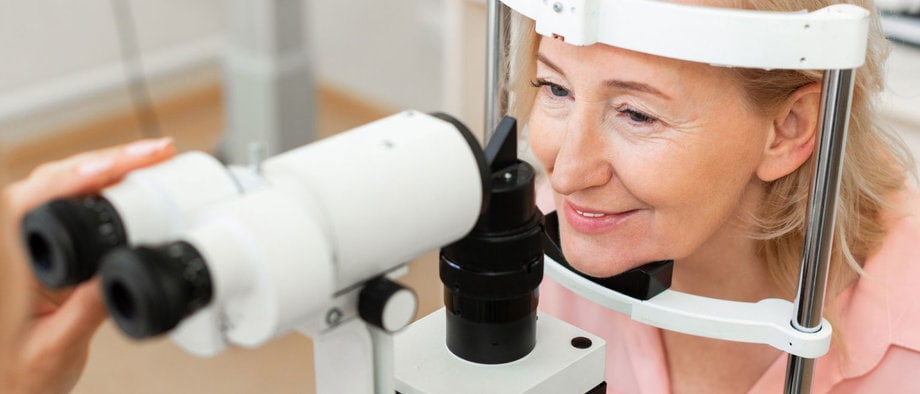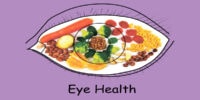Why Regular Eye Checkups Are Crucial for Seniors

Regular eye checkups are of utmost importance for seniors due to the prevalence and impact of age-related eye conditions. Detecting these conditions early can help prevent vision loss and maintain senior independence.
Comprehensive eye exams provide numerous benefits to aging adults, as they allow for the identification and management of common eye problems.
Finding the right eye care provider is also crucial in ensuring seniors receive the necessary care.
This article explores the significance of regular eye checkups in promoting the well-being of seniors.
Key Takeaways
- Regular eye checkups help maintain optimal vision
- Early intervention prevents further deterioration of age-related eye diseases
- Regular checkups allow for early detection and treatment of potential eye conditions
- Educating seniors on proper eye care practices improves treatment outcomes
The Importance of Regular Eye Checkups for Seniors
Regular eye checkups for seniors are essential in maintaining optimal vision and detecting any potential eye conditions or diseases. As individuals age, they become more susceptible to age-related eye diseases, such as macular degeneration, cataracts, and glaucoma. These conditions can significantly impact a senior’s quality of life and independence. Therefore, early intervention is crucial to prevent further deterioration and manage these eye diseases effectively.
Regular eye checkups allow eye care professionals to monitor any changes in the eyes and identify early signs of these conditions. Through comprehensive eye examinations, seniors can receive timely treatment and appropriate interventions to slow down the progression of age-related eye diseases. Moreover, regular eye checkups also enable eye care professionals to detect other underlying health issues, such as diabetes and hypertension, which can affect vision.
Age-Related Eye Conditions and Their Impact on Seniors
This discussion will focus on three key points related to age-related eye conditions in seniors:
- Common senior eye conditions: Age-related macular degeneration, cataracts, and glaucoma are common eye conditions that affect seniors. These conditions can significantly impact a person’s vision and quality of life.
- Vision loss prevention: There are strategies that can help reduce the risk of developing these conditions and prevent vision loss. Maintaining a healthy lifestyle, wearing protective eyewear, and managing chronic conditions are some of the ways to prevent vision loss.
- Importance of early detection: Early detection of age-related eye conditions is crucial. It allows for timely intervention and treatment, which can help slow down disease progression and preserve vision. Early detection is key to maintaining good eye health in seniors.
Common Senior Eye Conditions
Cataracts, age-related macular degeneration (AMD), and glaucoma are among the most common eye conditions that affect seniors. These ocular diseases can significantly impact the vision and overall quality of life of older individuals.
Cataracts, characterized by the clouding of the eye’s lens, can cause blurry vision and increased sensitivity to glare.
Age-related macular degeneration affects the macula, the central part of the retina responsible for sharp, central vision. It can lead to a loss of central vision, affecting activities such as reading and driving.
Glaucoma, a group of eye diseases characterized by damage to the optic nerve, can lead to peripheral vision loss and, if left untreated, can progress to complete blindness.
Treatment options for these conditions vary and may include surgical interventions, medication, and lifestyle modifications.
Regular eye checkups are essential for early detection and management of these conditions, as early intervention can significantly improve outcomes and preserve vision in seniors.
Vision Loss Prevention
To prevent vision loss in older individuals, it is important to implement strategies that focus on early detection and management of ocular diseases such as cataracts, age-related macular degeneration (AMD), and glaucoma.
Regular eye checkups play a crucial role in senior eye health as they enable early identification of these conditions. Cataracts, characterized by clouding of the lens, can be detected during an eye exam, allowing for timely surgical intervention to restore vision.
Age-related macular degeneration, a leading cause of vision loss in seniors, can be diagnosed through a comprehensive eye examination including visual acuity tests and retinal imaging. Similarly, glaucoma, a progressive disease that damages the optic nerve, can be detected early through intraocular pressure measurements and visual field tests.
Early detection and management of these conditions through regular eye checkups are essential for vision preservation in older individuals.
Importance of Early Detection
Early detection plays a vital role in the preservation of vision in older individuals as it allows for timely intervention and management of ocular diseases such as cataracts, age-related macular degeneration (AMD), and glaucoma. Regular eye checkups enable healthcare professionals to identify these conditions in their early stages, which significantly increases the chances of successful treatment and prevents further deterioration of vision. The importance of early detection lies in the fact that many eye diseases are asymptomatic in their initial stages, making it crucial to detect them before irreversible damage occurs. By monitoring the progression of these diseases, eye specialists can implement appropriate interventions, such as surgical procedures or medication, to slow down or even halt their advancement. The following table highlights the benefits of early intervention in preserving vision in older individuals:
| Benefits of Early Intervention |
|---|
| Prevents irreversible damage |
| Increases treatment success |
| Slows down disease progression |
| Improves quality of life |
Early Detection: Preventing Vision Loss in Seniors
Regular checkups play a crucial role in maintaining the health and well-being of individuals, especially as they age. These routine visits to healthcare professionals serve as preventive measures by allowing for early detection and intervention of age-related conditions.
Importance of Regular Checkups
Conducting regular eye checkups is essential for seniors due to the potential age-related eye diseases and conditions that can be detected and managed through early detection and appropriate intervention. Preventive care plays a crucial role in maintaining good eye health and preventing vision loss in older adults. Regular checkups allow for early identification of any potential problems, enabling prompt intervention to prevent further deterioration. Early intervention has several benefits, including the ability to slow down or halt the progression of certain eye diseases, improve treatment outcomes, and maintain a higher quality of life. Moreover, regular checkups also provide an opportunity for healthcare professionals to educate seniors about proper eye care practices and offer appropriate interventions, such as prescription glasses or contact lenses, to optimize visual acuity.
| Importance of Regular Checkups | Benefits of Early Intervention |
|---|---|
| Early detection of eye diseases | Slows down disease progression |
| Prompt intervention | Improves treatment outcomes |
| Preserves visual acuity | Enhances quality of life |
| Education on eye care practices | Prevents further deterioration |
| Appropriate interventions | Optimizes visual acuity |
Preventing Age-Related Conditions
Preventing age-related conditions is of utmost importance in maintaining optimal eye health among the elderly population. Macular degeneration and cataracts are two common age-related conditions that can significantly impact vision.
Macular degeneration is a leading cause of vision loss among older adults, affecting the central part of the retina. Regular eye checkups can help detect early signs of macular degeneration, allowing for timely interventions such as lifestyle modifications and medication.
Similarly, cataracts, characterized by the clouding of the eye’s lens, can also be identified during routine eye examinations. By identifying cataracts early on, healthcare professionals can recommend appropriate treatment options, including surgery if necessary.
Therefore, regular eye checkups play a crucial role in preventing macular degeneration and ensuring timely cataract prevention, ultimately promoting optimal eye health in the elderly population.
Understanding the Benefits of Comprehensive Eye Exams for Seniors
An in-depth examination of the advantages associated with comprehensive eye exams for seniors reveals the importance of early detection and treatment of age-related eye conditions.
Senior eye health is a crucial aspect of overall well-being, and vision care for aging adults plays a significant role in maintaining their quality of life.
Comprehensive eye exams provide a comprehensive assessment of seniors’ visual health, including the detection of common age-related eye conditions such as cataracts, glaucoma, and age-related macular degeneration.
These exams not only diagnose these conditions at an early stage but also allow for timely intervention and treatment.
Additionally, comprehensive eye exams can detect other underlying health issues, such as diabetes and hypertension, which may manifest in the eyes.
Regular eye checkups are essential for seniors to ensure optimal vision and overall health.
Common Eye Problems in Aging Adults and How Checkups Can Help
Age-related eye problems commonly affect the visual health of older adults, and comprehensive exams play a vital role in detecting and managing these conditions. Some of the most common eye problems in aging adults include age-related macular degeneration, cataracts, and glaucoma. Regular eye checkups can help in the early detection and treatment of these conditions, preventing further deterioration of vision.
The importance of eye health in aging adults cannot be overstated. Visual impairments can significantly impact daily activities, leading to a decreased quality of life and increased risk of accidents and falls. Regular eye exams can help identify and address any changes in vision, allowing for timely intervention.
In addition to regular checkups, nutrition also plays a crucial role in maintaining good eye health. A diet rich in antioxidants, vitamins, and minerals, such as omega-3 fatty acids, vitamin C, E, and zinc, can support eye health and potentially reduce the risk of age-related eye conditions.
The Role of Regular Eye Exams in Maintaining Senior Independence
Regular eye exams play a vital role in maintaining the independence of older adults by detecting and managing age-related eye conditions. Visual health is crucial for overall well-being, especially in seniors, as it directly impacts their quality of life and ability to perform daily activities independently.
Regular eye exams help in the early detection and treatment of conditions such as cataracts, glaucoma, macular degeneration, and diabetic retinopathy, which are common in older adults. By identifying these conditions early on, appropriate interventions can be initiated to prevent further vision loss or complications.
Additionally, eye exams also provide an opportunity to assess the need for corrective measures such as glasses or contact lenses, which can significantly improve visual acuity and enhance senior well-being.
Therefore, promoting regular eye exams is essential for maintaining the visual health and promoting the overall well-being of older adults.
Tips for Finding the Right Eye Care Provider for Seniors
Finding the right eye care provider for older adults involves considering factors such as experience, qualifications, and accessibility to ensure optimal visual health management.
When searching for an eye care provider for seniors, it is important to prioritize affordability and Medicare coverage. To find affordable options, individuals can consider providers who accept Medicare and participate in vision plans. Additionally, some providers offer discounted rates or payment plans for older adults on a fixed income.
It is also crucial to ensure that the eye care provider has experience in treating age-related eye conditions and has the necessary qualifications, such as being a licensed optometrist or ophthalmologist.
Accessibility is another important factor to consider, including the location of the provider and the availability of transportation options for seniors with limited mobility.
Frequently Asked Questions
How Often Should Seniors Get Their Eyes Checked?
The frequency of senior eye checkups is a key consideration due to the importance of regular eye exams. Determining how often seniors should get their eyes checked requires careful assessment of factors such as age, overall health, and any preexisting eye conditions.
What Are Some Signs and Symptoms of Age-Related Eye Conditions?
Common age-related eye conditions include cataracts, age-related macular degeneration (AMD), and glaucoma. Symptoms may include blurry vision, difficulty seeing at night, and loss of peripheral vision. Treatment options vary depending on the condition.
Can Vision Loss in Seniors Be Prevented or Reversed?
Preventing vision loss in seniors is a topic of significant interest. New technologies for vision restoration have shown promise in improving visual function, but further research is needed to determine their effectiveness in preventing or reversing vision loss in this population.
What Is the Difference Between a Comprehensive Eye Exam and a Regular Eye Checkup?
A regular eye checkup typically involves a basic assessment of visual acuity and the presence of any obvious eye abnormalities. In contrast, a comprehensive eye exam includes a more thorough evaluation of eye health, including the examination of the retina and optic nerve.
Are There Any Specific Eye Problems That Are More Common in Aging Adults?
Common age-related eye conditions in older adults include cataracts, glaucoma, age-related macular degeneration (AMD), and diabetic retinopathy. Early detection and management of these conditions through regular eye checkups are essential for maintaining good vision and preventing vision loss.








